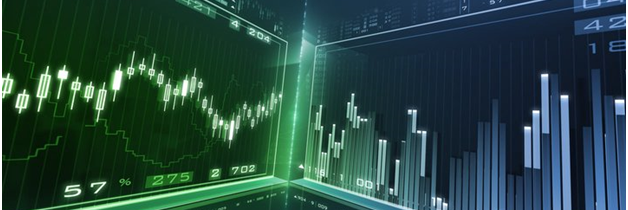Stock trading and forex trading both involve leveraging on consistently altering prices. While Stock trading with a broker involves buying and selling of shares of individual companies, forex trading involves simultaneous buying and selling fiat money of two different countries.
Stock trading works best when there is a rise in market pricing because low liquidity makes short selling when the market is falling difficult. If you are a client of the Forex broke, on the contrary, can be profitable in any circumstance since every trade involves both buying and selling and there’ is high liquidity.

While both forex and stock trading involve leveraging on short-term price changes to make a profit. The risk involved in the process is that the price of the stock or currency you are holding will fall instead of rising. Plus there are always risks connected with a company, so the best action is to choose the most reliable forex broker.
Also, similar to stock trading, forex traders depend greatly on technical analysis to discover price shifts. Success as a forex or stock trading necessitates an extensive basic understanding of the way the markets work to make a constant profit.
Some of the risk involved in stock and forex trading with a broker include the following:
Interest Rate Risks
Interest rates affect the exchange rates of countries’ currencies. When the exchange rate of a country rise, it’ll strengthen the country’s currency because investors will flock into the country since stronger currency results in higher returns. The reverse is also the case. A weaker or stronger currency also impacts the stock’s pricing and worth.
Transaction Risks
Transaction risks are exchange rate risk connected with time variation between the start of a contract and the settlement of the contract. Time variation results in the fluctuation of exchange risks faced by the individual and corporate traders of those currencies.
It is essential for global trade that forex trading occurs 24 hours daily. All brokers provide a permanent access to trading. The demands for stocks and other securities on the hand drops after the trading hours of the country where the companies that own the stocks are established. So, it makes sense that the stocks market opens only during the trading hours.
Country Risk
When deciding to invest in currencies or stocks of companies residing in a country, it’s worth assessing the structure and economic stability of the country. In a lot of developing and third world countries, exchange rates are pegged to a top global currency like the US dollar.
Leverage risks
The amount of leverage accessible to forex traders is extremely high compared to the leverage offered in stock trading. This means forex trading comes with high-profit potential and as well increases the trader’s risk when trades don’t go as planned. Many brokers offer high leverage for their clients.
While in the forex market excessive use of leverage causes huge losses, the loss in stock trading is extremely minimal. This because in the US, for instance, the maximum leverage for forex trading is 50:1 whereas that of the stock is 2:1.
Volatility
The stock market is commonly more volatile than the forex market because the prices of stock are comparatively stable during good periods of stable economic conditions. For the forex market, this doesn’t always happen, the periods of high volatility may or may not fall at the same time with that of the volatility of the stocks pegged in the country’s currency.
Liquidity
The Forex market comes with higher liquidity compared to stocks because there is a significantly larger amount of traders involved in the forex market at a particular time. Stock, on the other hand, are limited in supply because they are shares of a company.
However, just like forex popular, blue chips stocks such as Vodafone and Microsoft are highly liquid while penny stocks are less liquid. Liquidity makes trading a currency pair or stock easier. High liquidity means tighter spreads and lower transaction costs.
Conclusion
Forex and stock trading both involve risks but trading forex is riskier than stock because it comes with higher leverage and a lot less regulation and this makes increases its profit potential as well as potential risks. The time differences and political status of a country can have a greater effect on the financial markets and value of the country’s currencies.
While forex assets come with the highest trading volume, the risks can result in serious losses. Understanding the risks of Forex brokers clients involved in forex and stock market will make it easier for you to determine if it’s what you want and which among the two meet your trading goals.

